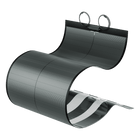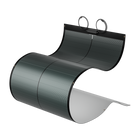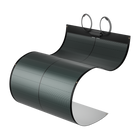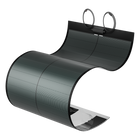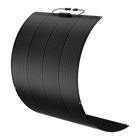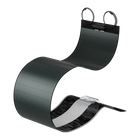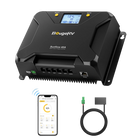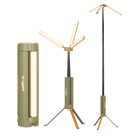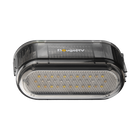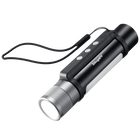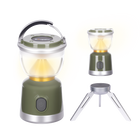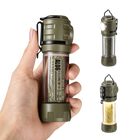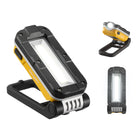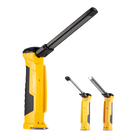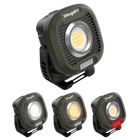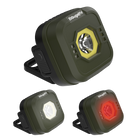How Often Do Solar Panels Need to Be Replaced?


Solar panels are a great way to reduce your carbon footprint and save your energy bill. They are also a reliable and sustainable source of renewable energy for homeowners, businesses, communities, and campers.
However, like any other technology, solar panels have a limited lifespan and will eventually need to be replaced. How often do solar panels need to be replaced? Our blog post will answer this question and provide some helpful tips on how to check out your solar panels and extend their lifespan.
Discover now!
How Often Do Solar Panels Need to Be Replaced?
On average, solar panels need to be replaced about every 25-30 years. Most solar panels come with a warranty lasting between 20 to 30 years. After this period, they can keep producing electricity but the ability to generate energy decreased significantly, typically by around 20%.
Several factors can affect the longevity of solar panels, including the quality of the panel, the amount of sunlight it receives, the climate, temperature variations, shading, orientation, maintenance routines, etc. For instance, your solar panels exposed to high temperatures in hot environments tend to have shorter lifespans because heat can speed up the aging process of solar cells.
Despite this, many solar panels continue to function efficiently well beyond their estimated lifespan. Furthermore, as technology advances, so does the durability and lifespan of solar panels. Therefore, if you're considering investing in solar energy, rest assured that it's a long-term investment that will produce energy for you for decades.
Do Solar Panels Need a Lot of Maintenance?

Solar panel panels are incredibly durable and require little to no maintenance over their productive lifetime. Even if something goes wrong, solar panels and components purchased from trustworthy suppliers like BougeRV come with extensive warranties that cover replacement and repair costs.
Rain naturally washes away most dirt and dust, but routine maintenance ensures no debris is blocking the sun's rays. Periodically cleaning, particularly in Spring and Fall, can remove accumulated dirt, leaves, bird droppings, and other debris, making your solar panels work at their optimal efficiency. The time you may need more extensive maintenance is during heavy-snowfall season, as inches of snow can hinder solar panels' performance.
In addition to cleaning, routine checks should be conducted to inspect wires and connections, ensuring they're in good working order. Be aware that critters can sometimes gnaw on these without being noticed. If you prefer not to do these tasks yourself, consider hiring a professional to perform an annual inspection. Spotting and addressing issues promptly can help retain the best performance and prolong the lifespan of your solar panels.
How Do I Know When to Replace My Solar Panels?

Take a visual inspection of your solar panels from time to time. There are some signs that you’ll need to replace your solar panel.
1. Age of Your Solar Panels
As mentioned, solar panels can last 20 to 30 years. If your 20-year-old solar panels appear to be in great shape yet aren't generating as much electricity as they used to, they may be nearing the end of their lifespan. In this case, consider replacing them with newer, more efficient models that can provide superior performance and savings.
If you're uncertain about the age of your solar panels, you can always consult a solar technician. They can provide an age estimate and advise you on your next steps.
2. Reduced Output and Declined Performance
If you notice a significant drop in your energy generation over time, or if you're paying more for electricity than you used to, it could be a sign that your solar panels are losing their efficiency due to age or damage.
You can use a monitoring system or an app to track your system's performance and compare it with the expected output based on your location and system size. If your panels are performing at a lower rate, it may be time to replace them.
3. Physical Damage
Cracks, chips, or delamination might be signs that your solar panels are no longer functioning properly and need to be replaced.
Windstorms and falling trees can damage your solar panels. Windstorms or heavy rain can break the glass of your solar panels. During winter months, sleet or hail has also been known to crack the glass. These physical damages can render your solar panels useless and can even influence the integrity and safety of your system, leading to electrical hazards or fire risks.
Once you notice any glass or structural breaks, you can call a licensed solar company to get an estimate for solar panel replacement.
4. Discolored Surfaces
Some solar panels may appear to be still sealed properly and show no signs of damage, yet they have a strange color tint. Unfortunately, this is an indication that water, debris, or some other contaminant has gotten inside your solar panel. This type of damage will decrease the efficiency of your energy output, so it's best to replace solar panels that have turned discolored.
5. Low-Quality Panels
Unfortunately, you might receive low-quality or even fake solar panels from some solar companies. This could result in your electric output being much lower than the supplier company promised.
If your solar panels are relatively new but are not producing as much energy as they should be, it might be a good idea to have another solar company check the quality of the solar panels.
6. Solar Components Fail
Perhaps you've noticed a drop in your solar power output, yet your solar panels look to be in good condition with no visible damage. There is likely an issue with the other parts of your solar power system.
Power inverters and battery storage don’t have the same extended lifespan as solar panels. Inverters typically need replacing about every 10 years. Batteries, on the other hand, require replacement much sooner. If your solar panels are still in good condition, it would be wise to have the rest of your solar power system inspected and replace any necessary components.
7. Manufacturer's Warranty
The manufacturer's warranty is another indicator of when you might need to replace your solar panels. This warranty covers any defects or malfunctions that might occur during the specified period.
If your panels are still under warranty and you're experiencing issues with them, you can contact the manufacturer or the installer to get them repaired or replaced for free, or at a reduced cost. However, if your warranty has expired and your panels are damaged, you might have to pay for the replacement out of pocket.
Conclusion

While solar panels typically need to be replaced every 25-30 years, regular cleaning, inspections, and proper protection can significantly extend their lifespan. Following the inspection instructions mentioned above, you can now check your solar panels to see if they need replacing.
Once you decide to replace them or invest in solar energy, consider taking a look at BougeRV's home and camping solar panels. These solar panels can generate massive power and significantly save on your electricity bill!
FAQs
1. What happens to solar panels after 25 years?
After around 25 years, solar panels become less efficient and produce less electricity. After 25 years, a panel's output might reduce to around 75-85% of its original capacity. As a result, they will be less effective at powering your home, which could lower your energy savings.
2. Are solar panels worth it long term?
Installing solar panels at home is a worthwhile investment. Solar panels can last 25 years or more and significantly reduce or even eliminate your electricity bills. Moreover, some portable solar panels can serve as a reliable power backup source while you are camping or living off the grid.
3. Are there any disadvantages of solar panels?
One of the disadvantages of solar panels is that they are vulnerable to weather disruptions. Cloudy days can reduce the amount of electricity your solar panels produce. However, with advancing technology and solar panel design, you can still find some solar panels that perform stably on cloudy days.
4. Do solar panels work when covered in snow?
Rain can help to wash off some loose dust or dirt from solar panels, but it’s not effective for thorough cleaning. Rain often includes pollutants and particulates that can leave residue on your solar panels over time. Therefore, despite occasional rainfall, regular manual cleaning is necessary to maintain the optimal performance of your solar panels.
5. Does cleaning solar panels make a difference?
Regular cleaning ensures your solar panels perform at their maximum capacity by allowing as much sunlight as possible to hit the cells. Dust, dirt, bird droppings, leaves, and other debris can accumulate on the surface of solar panels and block sunlight, reducing their energy output.
According to some studies, dirty solar panels can lose between 15-25% of their efficiency. Some researchers have found an average 3.5% boost in energy production after cleaning the panels.
6. How often do solar panels need to be cleaned?
It's suggested that a thorough cleaning should be conducted at least once a year. Annual cleaning can enhance the energy output by as much as 12%.
However, if you live in an area that frequently experiences hurricanes and sandstorms, it's better to clean your solar panels more often or immediately upon noticing debris and dirt.
7. How to Extend the Life of Your Solar Panels
To prolong the life of your solar panels, clean them regularly and schedule annual inspections. Keep an eye out for damage signs, protect your solar panels against harsh weather, use a backup battery, and apply a protective coating periodically. Also, obtain a performance warranty for further assurance of their longevity.
















